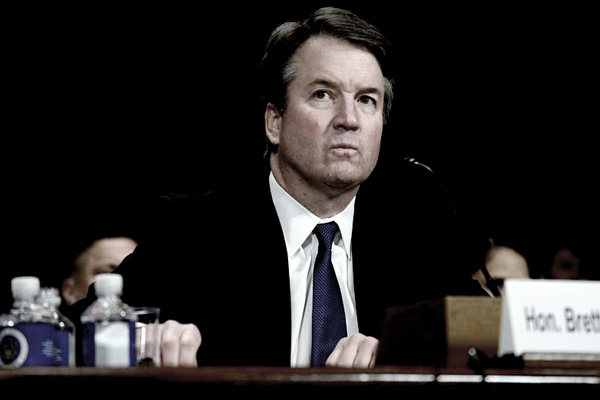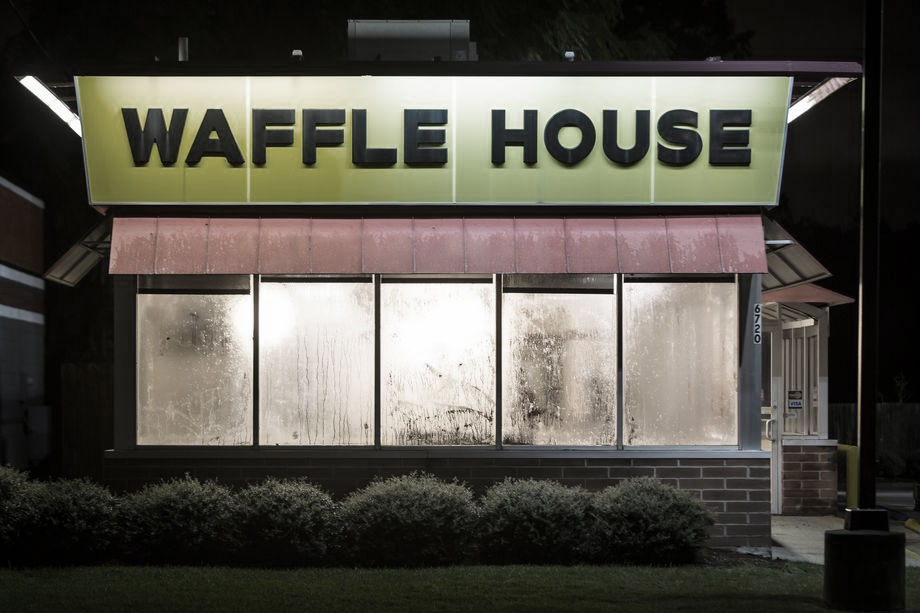Thursday, October 3rd, 2019
•
Writing

Readers of Stephen King’s new novel, The Institute, if they are familiar with his work, will want to find out as quickly as they can if this is one of the good ones—whether King’s familiar, crude mining tools will find a seam, how efficiently his picks and chisels will unearth the precious ores he can still pry loose from the substratum of popular fiction, and whether those retrieved riches will make the descent into those unappetizing depths worthwhile. Since King seems to have no editors, and will always be published whether he has the goods or not, there is no way to tell the duds from the winners—clumsy opening passages never get the rewrites they need, so one must wait several chapters for the engines to fully ignite. Once the volcanic, unmistakable King rocket thrust kicks in, delivering its payload of suspense, perspicacity, keen-eyed observation, mounting dread, and ambushes of unexpected emotional force, one is hopelessly trapped: nobody can propel a reader through a sleepless night like King, who somehow manages to re-ignite a buried, child-like fear of the darkness surrounding the bed that can only be assuaged by continuing to turn pages. Even when operating at full-bore, King can rarely sustain his magic act all the way through a novel: his most promising, cinema-ready big ideas tend to collapse into maddeningly inadequate denouments like those in Desperation (1996) or Under the Dome (2009), although many of his eighty-plus books—Carrie (1974); Pet Sematary (1983); the 1982 novellas “Rita Hayworth and Shawshank Redemption” and “The Body,” which was adapted as the movie Stand By Me—land like Olympic gymnasts. The new book takes longer than usual to find its way, but it proves to be one of the good ones, and it ends very well.
The Institute is a tall tale of children abducted away from their murdered parents, removed to a hidden government-run stronghold, and forced into a kind of slavery, and of the one prisoner, a gifted child (in the mundane, non-supernatural sense) who tries to muster the cunning and fortitude to escape. The setting is King’s usual pointedly non-cosmopolitan America, an ugly landscape of Radisson restaurants, overbooked flights, choked highways, and junk food, brought up to date with bump-stocked guns and Airpods and Rihanna songs and flash drives and WWF posters (King’s unfakable familiarity and comfort with the unvarnished consumer landscape he shares with his vast readership is as honest as Springsteen’s or Ginsberg’s). The villains are not just state-controlled captors but predatory credit-card debt-consolidators, unctuous school officials, and trigger-happy police—one of these, a Florida cop fired for a stray gunshot, eventually provides one of King’s trademark ersatz parent-child bonds with the protagonist. There is, of course, a science-fiction/fantasy armature to all of this—the prisoners are subjected to drug treatments that amplify their nascent psychic abilities, which are harnessed for assassinations—but the fabric of the storytelling is, as always, the active ingredient. King is best known for gaudy, cinema-ready scare concepts, but on the page, his mastery of structure, his dizzying control of scenes, the cavalier timing with which he throws the railway switches that propel his stories’ freight towards their destinations, remain his strongest suit, as much as his eye and voice. The Institute provides King’s expected dose of blood and terror, but along the way, there is a runaway child’s boxcar journey down the Atlantic states, with scattered views of the deepening Southern landscape, a panoramic gaze between cargo crates at the railway trestles and depots and the passing trees and stars, that has a Woody Guthrie poetry.
What is all this about? Is King describing caged migrant children, or overseas victims of outsourced black ops? (He includes pointed references to Blackwater and Halliburton, and a deep-south open-carry enthusiast calls President Trump “that big-city shit for brains.”) As in 1980’s Firestarter, which The Institute most resembles, the internal monologues of the captors and torturers smoothly rationalizing their atrocities are tuned in the direction of stock villainy but convey enough Arendt-style banality to work as blatant signifiers, recognizable to readers with even the slightest contemporary political focus. King himself, discussing the social and political meaning of fantasy in Danse Macabre, his 1981 book-length meditation on the horror genre, insists that genre fiction works best when its application remains vague and unspecific: the movie based on Jack Finney’s sci-fi thriller The Body Snatchers (1955), he writes, has been imputed to contain “all sorts of high-flown ideas” ranging across a spectrum from Anti-McCarthyism to Anti-Communism, “[b]ut in my heart, I don’t really believe that [director Don] Siegel was wearing a political hat at all when he made the movie (and you will see later that Jack Finney has never believed it, either); I believe he was simply having fun and that the undertones…just happened.” (“[S]ometimes these pressure points, these terminals of fear, are so deeply buried and yet so vital that we may tap them like artesian wells.”) The best writers of speculative fiction, King concludes in his appreciation of The Twilight Zone, echo a “Daliesque ability to create the fantasy…and then not apologize for it or explain it. It simply hangs there, fascinating and a little sickening, a mirage too real to dismiss.”
Harold Bloom, the literary critic, appalled when King received the 2003 National Book Foundation’s award for “distinguished contribution”—the same given to Saul Bellow, Philip Roth and Arthur Miller—took exception in a contemptuous Boston Globe essay repeating his ongoing excoriation of American “post-literate” standards: King’s recognition was “a terrible mistake;” “another low in the shocking process of dumbing down our cultural life.” Bloom’s previous descriptions of King “as a writer of penny dreadfuls” was, he amended, “too kind…what he is is an immensely inadequate writer on a sentence-by-sentence, paragraph-by-paragraph, book-by-book basis.” But this misses the point: King cannot write, the way John Wayne cannot act or Bob Dylan cannot sing. His work is not literature, it’s Americana; it has the gloss and force of all unreconstructed popular art, from Norman Rockwell to Walt Disney, Frank Capra to Norman Lear, Andrew Lloyd Webber to Matt Groening, as critically problematic as all of them, and, like all of them, it aims to satisfy base appetites while humbly groping for greater meanings, occasionally making contact, retrieving the precious metals lacing through our society’s foundations. Unvarnished and crude, but vital and alive, half straw and half gold, Stephen King’s near-fifty-year span of writing continues to provide a perpetual dark reflection that America obviously wants, and probably needs.
Tuesday, October 2nd, 2018
•
Politics / Writing

1. Innocent Until Proven Guilty
This began mainly with Lindsey Graham, who, before Thursday’s hearings, reminded us of his own experience as a defense attorney. The rebuttal, of course, is that Kavanaugh is not on trial—the committee’s evaluation is founded upon an entirely different and more abstract set of principles. The Senate Judiciary Committee has full discretion to vote however they see fit; the Constitution provides no qualifications for SCOTUS justices and the process has nothing to do with rules of evidence or other elements of criminal investigations.
2. No Proof
Commenters have been apoplectically insisting on this, but it misses the point. There may in fact be no real way of determining beyond a reasonable doubt what happened in that room, but the operative question is the dishonesty and lack of character and judgment with which Kavanaugh has defended himself in the present time, and what this behavior reveals about his temperament and judgment (obviously important for a judge). And, there’s plenty of proof, not just that he lied repeatedly to the Committee, but specifically about the evening in question. (Not to mention the existence at least one eyewitness who has yet to testify under oath, whose appearance before the Committee would obviously address a need for “proof.”)
3. Ford Can’t Remember
(Including variations: Ford was coached; the therapists have planted the memories; she’s exaggerating etc.) This might work were the witness not a professor of psychology (at Palo Alto University) and a research psychologist at the Stanford University School of Medicine, fully willing and able to present her memories within a rock-solid academic framework. The well-founded psychological studies cited by Ford and others demonstrate that traumas of this kind are well-remembered despite delays in their being reported.
4. It’s a Liberal Conspiracy
Clearly the most widespread and deep-rooted—and angriest—meme in use within the Senate chamber and in remarks to reporters. The problem is the timeline (see below): for Ford to have been “put up to this,” as a pawn in a devilish larger game (with Dianne Feinstein and her infamous letter in the Linda Tripp rôle), we would have known about all of this long in advance of the hearings; it’s hardly a tactical advantage to wait until the final week of deliberations.
5. It’s Bad For Boys
Donald Trump Jr. has, of course, dived headfirst into this one: How are we supposed to protect our male progeny in a world where “any man” may be “destroyed” by accusations of rape? [Trump Jr.’s tweet may be the best example of this one.] Only between 2% and 10% of rape reports are determined to be false, and statistics regarding more general harassment claims are not much different.
6. He Was a Kid
The “youthful indiscretion” argument was successfully used by George W. Bush’s father and other supporters in 2000 to defend against recently-unearthed reports of the then-candidate’s 1976 DUI guilty plea (when the “youth” was thirty). The counterargument, of course, is Trayvon Martin, Trump-era detainees, and countless other American who are forced to sacrifice everything up to and including their lives in payment for their behavior as teenagers.
7. It Was a Long Time Ago
Variation on #6, adjusted to address changing morés in society; John Hughes movies etc. (and men’s sarcastic ripostes about how “these days” they’re “not allowed” to make certain remarks to women; grab them etc.). This gets into the broader arguments of the entire #metoo movement, and, therefore, into deep waters, but it’s nevertheless easy to point out that Kavanaugh’s alleged actions that night would be criminal in any decade—and, according to a former Deputy Attorney General of Maryland (where the alleged attack occurred), “attempting a sexual assault with the aid of another person counts as attempted first-degree rape, just as restricting a victim’s breathing to stop her from shouting for help could fairly qualify as first-degree assault. Both are felonies with no statute of limitations in Maryland.”
8. He’s Been an Outstanding Citizen/Lawyer Ever Since
Maybe, if you don’t look too hard at the rôles he played, not just in Ken Starr’s odious Whitewater/Lewinski impeachment proceedings, but during the 2000 Florida recount (and its famous “Brooks Brothers Riot”). In other words, Kavanaugh is a past master at precisely the sort of formalized smear campaign/character assassination that he’s insisting he’s the victim of, today.
9. This Was Sprung on Senators at the Last Minute
The timeline was dictated by Ford’s wish to remain anonymous—her original complaints came to Senator Feinstein long before Kavanaugh was even the final White House choice as nominee. (All of this was exhaustively covered in her testimony.)
10. We’re Politicizing It
This is the most directly philosophical and abstract argument for Kavanaugh’s confirmation and the hardest to refute, since the question of how one does or not “politicize” what’s been tacitly understood to be an implicitly political process since at least the days of Oliver Wendell Holmes remains unclear. The low-hanging-fruit rebuttal is, of course, the Republican-controlled Senate’s refusal to confirm Merrick Garland, which is clearly the most blatantly political treatment of a SCOTUS nominee in history—Robert Bork’s insistence that his 1987 rejection was “political” did not get taken seriously at the time (Senator John Warner’s Senate-floor speech declaring President Reagan’s statement that the opposition to Judge Bork was a ”lynch mob” was ”unbecoming the office of the Presidency” is, of course, quaint by Trump-era standards).
Bonus Argument: I Don’t Care; I Just Want Him On The Court
As the proceedings continue to drag out, this increasingly frantic position gains ground, being impulsively blurted out more and more—but the rebuttal is, as with #10, philosophical. Expediency, hypocrisy, realpolitik and moral/ethical dilemmae are of course no strangers to politics, but maybe the best response to this one is simply to let it stand, as an emblematic symbol of just how far the principles of American governance have fallen in this dark and turbulent era.
Monday, April 23rd, 2018
•
Politics

I keep making the same point (here and elsewhere) and not getting any traction, which surprises me: this is the main reason I’m a gun abolitionist. It’s not that I don’t countenance any rebuttals about hunting or self-defense. (I don’t, actually, but that’s beside the point.) It’s that I don’t understand why we’re not allowed to take an extreme position, when the other side does nothing but.
Every time I say “Get rid of the guns” I’m strongly cautioned about how, No, we can’t be so extreme; we have to compromise because lots of good people have firearms and are part of gun “culture” and we mustn’t insult them or risk upsetting them etc….and I say, Why the hell not? Nobody on the NRA side’s worried about upsetting us (or, you know, shooting us) and none of them have the slightest compunctions about using the most insane apocalyptic rhetoric, calling us enemies of America and worse, and absolutely insisting on the most extreme possible position (saying that any encroachment on anyone’s rights to guns in any situation is nothing less than a fundamental Constitutional crime against the flag) no matter who gets insulted or, you know, shot dead.
This is the usual liberal “bring a knife to a gunfight” position. It’s how Obama lost all that ground. “Let’s capitulate!” is always our first response. I hate this. Why can’t we be the extremists? No guns, anywhere, ever. Start from there—it’s a vastly more reasonable position than anything they’re saying (given 2nd Amendment debates etc.)—and then let’s negotiate.
This is what happened with cigarettes, too: the other side had a “give zero ground” tactic. They never settled or lost any civil or criminal suits, ever. They refused to acknowledge that nicotine was addictive (even after finally submitting to those Surgeon General’s warning). Nothing changed until the Brown & Williamson suits in the late ’nineties when they folded…slightly…and pulled ads from magazines and got rid of the billboards and made some other slight concessions. (And the activists who made the tobacco lobby blink, did it by using sweeping rhetoric, saying that the cigarette companies were “guilty of perpetrating the biggest fraud on the public in American history”—they didn’t start by reassuring everyone that “nobody’s against cigarettes” or attempt to prove their “bona fides” by saying they themselves smoked or whatever.)
This is the same thing: we’re dealing with fanatical extremists with lots of money who play for keeps and don’t give up any ground at all. So of course, we start making concessions, appeasing them more and more while they continue to spit on us. It’s the liberal way.


